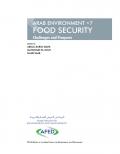This document reviews literature to provide a background for the CDKN research project "Gender equality and Climate Compatible Development- Drivers and challenges to people’s empowerment". The project addresses major knowledge gaps in relation to the gender dimension of climate change mitigation, adaptation, and development. Its aim is to strengthen the evidence base of gender-sensitive approaches to climate compatible development (CCD). The project will explore to what extent gender-sensitive approaches contribute to greater gender equality and more effective CCD. It will therefore help to create more nuanced gender analysis of CCD projects, provide compelling evidence of the benefits of gender-sensitive approaches to CCD and translate usable insights for policy and practice while supporting people’s empowerment.
This paper illustrates the foundations of green growth in Zambia and provides an overview of green development co-operation efforts in the country from 2004 to 2012. Furthermore, it discusses on-going efforts towards greening growth in Zambia. Aditionally, the study looks at total bilateral green Official Development Assistance (ODA) flows from members of the Organisation for Economic Co-operation and Development’s (OECD) Development Assistance Committee (DAC) member countries, i.e. targeting biodiversity, climate change adaptation, climate change mitigation, desertification, and other environmental objectives. This analysis draws on OECD DAC statistics, in particular the Creditor 10 Reporting System (CRS). It describes the sectors targeted, as well as the instruments used, and discusses the degree of alignment between Zambian priorities and providers’ activities. Another section of the paper then explores specific provider co-ordination efforts and strategies to support the mainstreaming of green issues incountry. The paper concludes with a number of questions that could guide further research on this topic in Zambia and beyond.

This paper argues that there are significant opportunities and challenges for promoting inclusive green growth in Africa without costly policy reversal. The paper demonstrates that inclusive green growth entails supporting growth that enhances human wellbeing, social equity and shared economic opportunities while reducing environmental risks and ecological scarcities, minimizing inefficient use of natural resources and maintaining biodiversity among others. Strategy for inclusive green growth should integrate environmental, social and economic issues into development plans and policies and take a long-term view of these issues as interdependent issues rather than mutually exclusive ones.
